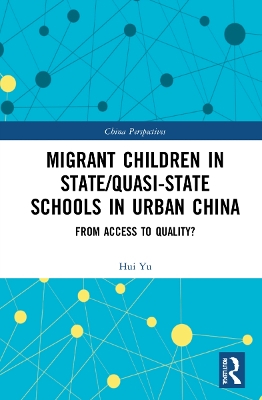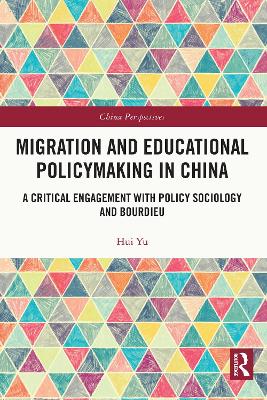China Perspectives
2 total works
Highlighting the changing landscape of Chinese urban state schools under the pressure of recruiting a tremendous number of migrant children, this book examines the quality of state educational provisions from demographic, institutional, familial and cultural angles.
Rooted in rich qualitative data from five Chinese metropolitan cities, it identifies the demographic changes in many state schools of becoming ‘migrant majority’ and the institutional reformation of ‘interim quasi-state’ schools under a low cost and inferior schooling approach. This book also digs into the ‘black box’ of cultural reproduction in school and family processes, revealing both a gloomy side of many migrant children’s academic underachievement as a result of troubled home-school relations and a bright side that social inclusion of migrant children in state school promotes their adaptation to urban life. The author concludes that migrant children’s experiences in state (and quasi-state) schools turn them into a generation of ‘new urban working-class’.
The monograph will be of interest to scholars, students, practitioners and policymakers who want to better understand educational equality for migrants and other marginalised groups.
By concentrating on the topic of school enrolment policy for rural-to-urban migrant children in China, this book analyses the unequal power relations and structural inequalities that can appear in the context of education.
The author complements current knowledge by applying theoretical resources of policy sociology, in particular the thinking of Pierre Bourdieu, into analysis of educational policymaking in the Chinese context. He takes a policy trajectory approach to trace the (unequal) power relations and structural inequalities invested and realised in the school enrolment policy. Rooted in rich qualitative data from five metropolises, he examines both external influences of politics, economy and public policy on educational policy agenda setting and discursive practices within the educational policy cycle, inherent in the post-2013 restrictive school enrolment policy. Structural constraints and agency in the local context are also explored, indicating that the intersectional effects of political, economic, and civic logic can result in differentiated modes of policy enactment.
The study will be of interest to scholars, students, policymakers and practitioners in helping address policymaking and social justice in education for migrants and other marginalised groups.

